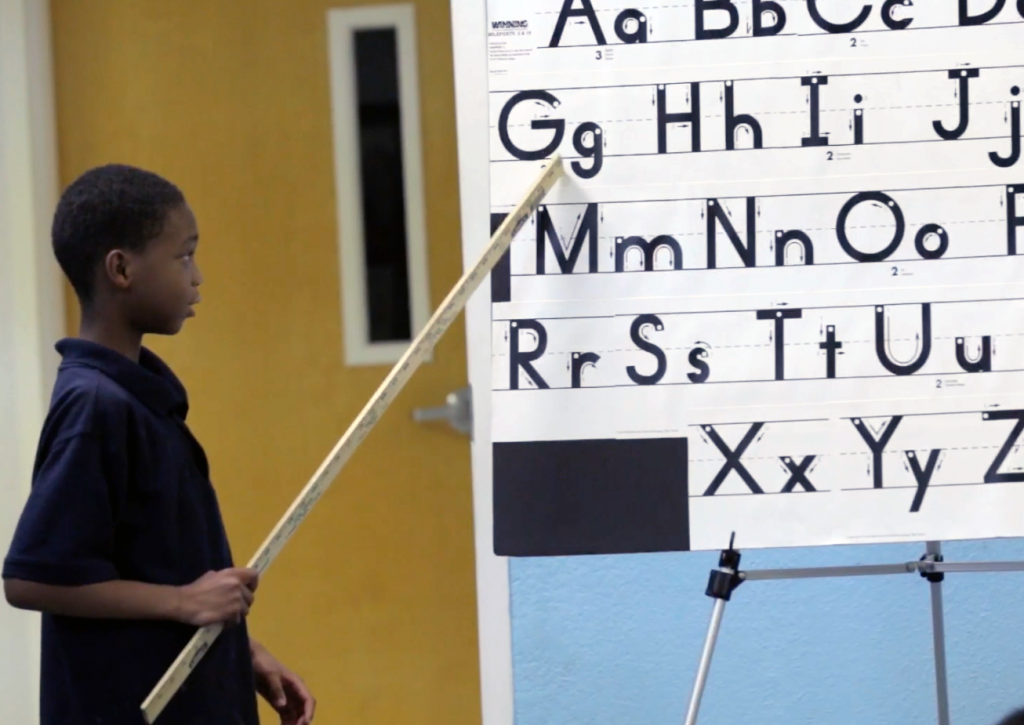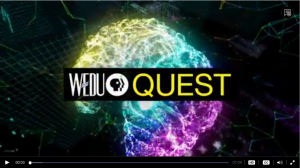UF will bring its Winning Reading Boost program to more Florida elementary schools

The University of Florida College of Education is extending the reach of an innovative program that uses phonics, rap music and other techniques to help struggling elementary students to learn to read.
In January, UF will bring its Winning Reading Boost program to four more Florida elementary schools and UF educators also are planning to roll out an improved learning-to-read model next summer.
Partnering with the college starting next semester are Rawlings and Alachua elementary schools in Alachua County and Fairmount Park Elementary and Midtown Academy in Pinellas County. They will join Lakewood Elementary in St. Petersburg, which launched the program last fall.
The college’s Lastinger Center for Learning is expanding Winning Reading Boost after it received a $400,000 grant in March 2016 from the Florida Legislature to help third- through fifth-graders who have not yet learned to read. The Lastinger Center serves as the College of Education’s teaching and learning innovation incubator.
Pilot study gets results
A recent UF pilot study showed that every student participating in a 90-day Reading Winning Boost after-school program in St. Petersburg improved their language decoding skills and reading fluency by at least 75 percent.
“The thing I’m most excited about is the program seems designed to fill in the gaps for children who are struggling to read,” said Eva Copeland, principal of Alachua Elementary. The school has targeted about 20 third graders and five fifth graders for the program who are in danger of falling behind because they cannot read.
The importance of learning to read has received increased attention in recent years. Researchers have found that if children fail to develop basic reading skills during the first few years of school they suffer not only academic problems but also economic and social-emotional difficulties. One in six students who cannot read proficiently by the third grade will not graduate from high school.
“The danger is in second grade students are learning to read and once they are in third grade they are reading to learn,” Copeland said. “If they are still struggling to read in third grade it makes the rest so much more difficult.”
Founder of the program
Winning Reading Boost traces its roots to an award-winning schoolteacher, Sue Dickson, who created the curriculum a generation ago at a time educators were abandoning teaching phonics for “sight reading,” or having students memorize words by sight. Dickson stuck with phonics and found success composing songs on the piano as a way of having dyslexic and other slow-to-read students to sound out words. In 2000, she sold the rights to her books and unique 36-step curriculum to an education book publisher. But when the rights lapsed, Dickson, who now lives in Safety Harbor, Florida, reclaimed them and partnered with researchers at the Lastinger Center to expand and improve the program, including updating workbooks with all-new contemporary images.
Shaunté Duggins, an early literacy and teacher development consultant for the Lastinger Center, said an important reason students improve their reading skills through Winning Reading Boost is they remember more information when rap, contemporary, jazz and other types of music are used.
“It makes reading fun, “ she said. “And by getting students engaged using proven learning-to-read methods they can make dramatic progress.”
Watch a segment on Winning Reading Boost that recently aired on “Quest,” a program from WEDU-TV in Tampa: http://video.wedu.org/video/2365857129.
Sources:
Shaunté Duggins, shaunte@coe.ufl.edu, 352-273-3654
Sue Dickson, SDSTTeach@outlook.com, 727-799-9825
Eva Copeland, copelaem@gm.sbac.edu, 386-462-1841
Writer: Charles Boisseau, UF College of Education, 352-273-4449
 See a segment
See a segment